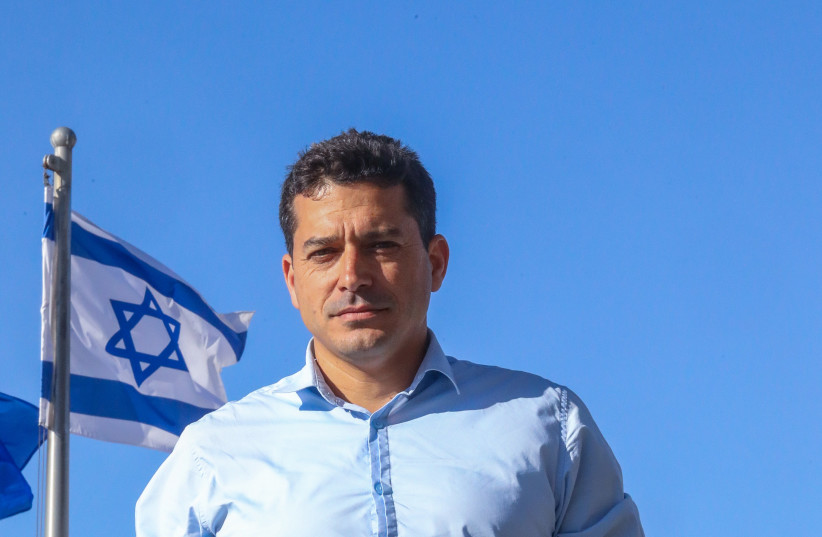Israel must foster a sense of Jewish peoplehood with the Diaspora – opinion
From the very beginnings of Zionism, the contribution of Diaspora Jewry to the formation, existence and resilience of Israel was and has remained extremely significant. During the first years of Israel’s existence, this contribution took many forms, such as philanthropy and voluntary recruitment to the IDF, as well as the investment of much time and connections to market the newborn state to various publics and influential decision-makers throughout the world.
That is, in order to support global decisions which may have been key to the survival of the Jewish state, prevent harmful decisions from being made, increase international aid for Israel and increase empathy and understanding for the Zionist narrative.
Simultaneously, a new and unofficial entity was born: The Jewish peoplehood. It was an entity without defined borders, no physical infrastructure and no defined leadership. It comprised the Jewish people in their entirety – those from the Diaspora and from the newly-born modern State of Israel, including religious and secular, young and old, Sephardi and Ashkenazi, strongly identified with Judaism and Israel or relatively low key.
The relationship between Jews in Israel and the Diaspora must be maintained
Throughout the years, the relationship between the Jews living in Israel and those in the Diaspora was maintained. Jewish organizations continue to contribute and partner with Israeli initiatives and organizations. Many Jewish delegations throughout the world continue to visit Israel on a regular basis; Jewish youth spend their summers in Israel and/or participate in various programs in the country in order to partake in the Israeli experience. Some even study in Jewish day schools in the Diaspora and maintain a connection to Israel and their Jewish identity on a regular basis.
Yet, despite all that, it seems that the ongoing contribution and partnership of Diaspora Jewry and their influence on decision-makers in their respective countries on issues pertaining to Israel is not always sufficiently recognized by the Israeli public and/or Israeli politicians.
 AMICHAI CHIKLI: Chose the long short path. (credit: MARC ISRAEL SELLEM)
AMICHAI CHIKLI: Chose the long short path. (credit: MARC ISRAEL SELLEM)Too often, Israeli political leaders ostracize Jewish religious leaders belonging to the Conservative and/or Reform streams. Disagreements concerning praying together at the Western Wall and other issues continue to cast a shade on Diaspora-Israel relations and continually gnaw at the invisible cohesive threads between Jews in Israel and abroad.
Doubtlessly, the Jewish Agency and other Israeli official and semi-official institutions significantly contribute to strengthening the bond between Israeli and Diaspora Jews. Nonetheless, the vast majority of Israeli youth do not know the added value of Diaspora Jewry for Israel. The issue is not inherently incorporated into the Israeli educational system as an obligatory subject and this serves to widen an already-existing vacuum of knowledge and education as per the importance of this partnership.
AT THE same time, the delegitimization movements, like BDS and other forms of antisemitism, are raising their gruesome heads throughout the world, and in particular on campuses. This in and within itself leads many Jews to understate their affiliation to Judaism and/or Israel.
Some do not wish to belong to a Jewish community and/or its official institutions as oftentimes this entails significant financial funding. For example, most Jewish schools in the Diaspora are private and sending one’s children to them is costly. Furthermore, there is a lack of Jewish schools which are secular and Zionist in nature rather than religious. Given this reality, many Jews who do not have the funds and/or do not wish to send their children to religious Jewish schools end up sending them to public institutions. Jews living in non-Jewish environments and attending public schools find it difficult to maintain a connection to their Jewish identity and to Israel.
Israel has a clear interest to include Diaspora-Israel relations in the educational curriculum of every Israeli Jew in the country. Furthermore, it must create a foundation or an alternative platform that will fund Jewish identity and Zionist education among Diaspora Jews, without their having to pay for it or at least in return for a symbolic fee. This is somewhat similar to the way France funds the export of its culture and language throughout the world.
Meetings between Israeli and Diaspora Jews must be an integral part of the educational system in Israel in order to strengthen the bonds between all elements of the Jewish Peoplehood and the glue that binds Jews from Latin America, Morocco, former USSR countries, the USA, Israel and the rest of the world. The inherent diversity is a blessing rather than a challenge and must be leveraged as a strength rather than a weakness.
Currently, given the declaration of the Diaspora Affairs Minister Amichai Chikli that Israel will invest much money in combating antisemitism and BDS on campuses throughout North America, we should pause for a moment and understand that we must simultaneously strengthen the bonds between all Jews, whether in Israel or abroad, in order for us to be united in the face of our challenges.
We must not be complacent amid the growing lack of identity among the young Jewish generation in the Diaspora, the growing chasm between Jewish youth in the Diaspora and in Israel and the rise in assimilation. We do not have the privilege to lose soldiers in this metaphorical army against the challenges which face us as a people and must thus maintain our cohesion. The latter will hugely aid the very noble and important battle against bigotry, hatred, antisemitism and the delegitimization of Israel.
The writer is the founder and the CEO of Ruth-Strategic Consulting, a former MK for the National Unity Party, a former deputy ambassador to Cairo and a past adviser to president Shimon Peres.





Comments are closed.